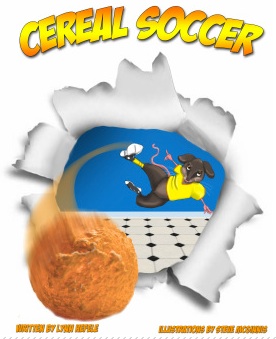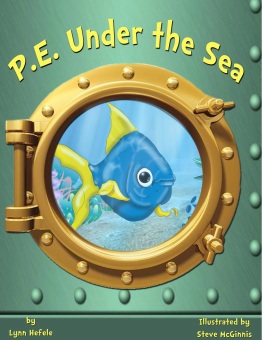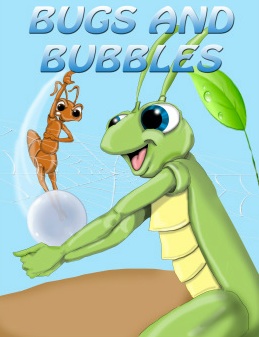Like many elementary school physical education teachers, early in my career I began creating an imaginary world in which my students could practice their skills. Many of the activities simply changed themes as Disney changed heroes and heroines. The beauty and brilliance of motivating students through their imagination is that when young children are pretending, they aren’t embarrassed, intimidated, or fearful of failure because they have lost themselves in the characters and setting of their imaginary world. All students – big, small, heavy or tall will move with purpose when they become Ninja Turtles, Power Rangers, dinosaurs or Spongebob.

About ten years into teaching, I found myself entertaining the students with a descriptive fictional scenario of the activity they were about to engage in when it dawned on me that there could be more to the story than just the opening scene. I realized that pushing my curriculum into the lives of Hollywood cartoon characters was a backward approach. Developing unique characters and a fantasy world to fit my curricular needs would be more educationally sound. A full-length screenplay could do more than just motivate students to move; it could educate students on how to move. By taking each unit and developing a storyline to fit the skills and strategies the students needed to learn, the philosophy of Literature Enhanced Physical Education (LEPE) was born.
It has been five years since the first teacher resource, Clean Up Your Backyard was published. In those early years, LEPE struggled to find a place in the physical education community. The idea of reading in the gymnasium seemed irreverent to many and I struggled to get people to appreciate my philosophy. Then…along came the Common Core State Standards and many in the PE world decided to take a look at this new teaching tool. While the intentions of LEPE are to motivate and educate children in physical education, LEPE stories have the ability to meet any number of Common Core Standards for Listen and Speaking, Literature, and Informational Text.
The average LEPE story takes about five minutes to read and can be read by the PE teacher or the classroom teacher prior to class. Within each story there are visual and verbal cues for motor skills, physical education specific vocabulary words, and sport techniques. The 3-5 lesson plans included with each fictional tale follow the storyline of the book and include creative ideas for meeting the Common Core Standards for Math and English Language Arts grades K-3, as well as rubrics for assessment.
While the total reading time is only five minutes at the beginning of a unit, the story and the lesson plans provide for a two to three week, full length, action-packed learning experience. By copying each page of the book and displaying them in the gymnasium, teachers can refer back to the story to point out visual cues or ask questions for understanding about the physical education concepts embedded in the story. A word wall can be created with physical education words from the text and contests that encourage writing and bulletin board ideas are included in a number of the LEPE publications.
In addition to fusing the Common Core Standards with the NASPE National PE Standards, LEPE lesson plans strive to balance teaching physical education with increasing physical activity. Each lesson is developed with the intention of maintaining 100% maximum participation for the entire class. For lessons in which having every student moving would be considered a safety hazard (i.e. batting), ideas for cooperative learning are included.
At the present time, there are seven teacher resources that are also available in PDF ebook format and as children’s books.
Clean Up Your Backyard– A whimsical story about two families making the most of a miserable chore by turning it into a fun filled throwing game. This resource teaches overhand throwing and throwing for accuracy.

Cereal Soccer– The story of a baby who dumps his cereal on the floor and the group of kitchen mice that use their soccer skills to return the tasty morsels to their holes. This resource teaches primary soccer skills and the concepts of offense and defense.
Ziny’s Driving School– This is the story of an alien girl on her first day of Quasar Driving School. Students learn how to travel through space using safe speeds and locomotor skills.
Widget’s Batting Lesson– In this story, Coby and his friends use their cooperative coaching skills to teach their alien friend how to hit off a tee. The lessons in this resource focus on teaching batting using cooperative learning strategies.

P.E.Under the Sea– This is the story of a group of sea creatures playing “Tickle Tag” in P.E. class. While the fish are trying to touch the toes of swimmers, students are learning how to underhand roll for accuracy.

Bugs and Bubbles– This story follows a group of bored teenage bugs as they practice their volley skills using bubbles. The resource teaches passing, setting, and spiking using balloons and punch balls.
Swish- This story chronicles the first day of basketball season as told through the eyes of Swish the Basketball. The teacher resource teaches ball handling, passing and shooting skills.
Cereal Soccer Explanation– This is a video that illustrates the applications of one of the ebooks.
